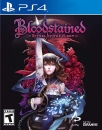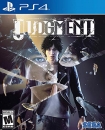spurgeonryan said:
Despite first loss in 30 years, Nintendo is still a contender
Late last month, Nintendo signaled that for the first time in more than 30 years it was posting an annual loss — of $845 million — something that until recently had seemed virtually impossible.
For three decades, Nintendo has been the company people associate with video games. And during the last few years, Nintendo expanded that notion to a wider audience than ever before with risky and innovative game machines, such as the Nintendo DS and the Wii. So, what has changed? Why are things suddenly difficult for the iconic game company?
During these past 30 years Nintendo has basically held a winning lottery ticket, which paid off year by year. Even after the failure of the headache-inducing Virtual Boy console in 1995, and the disappointing sales of its Game Cube console in the early 2000s, Nintendo never posted an annual loss.
But times have changed, the gaming industry is undergoing a massive shift, and the explosion of smartphones and cheap smartphone games is hurting Nintendo.
Paying ¥4,000 (or more) for a game — to play on a ¥15,000 handheld console — is becoming harder and harder to justify when anyone can buy a game like "Angry Birds" on their iPhone for ¥85 — and get regular free updates that bring new characters and new levels.
According to Nintendo's own data, the handheld-console market is getting smaller, both in Japan and abroad. No doubt this is due to the rise of smartphone games.
Sony is also feeling the smartphone effect, with its PS Vita handheld console floundering in Japan. Even with a slew of games at launch, reception for the PS Vita has been tepid here. The machine itself offers a fantastic gaming experience, as does the Nintendo DS, because both are dedicated game machines built with players and creators in mind. Smartphones, however, are multifunctional, designed for various purposes, such as surfing the Net, sending email, taking photos and of course making phone calls. Video games are tacked on. And because smartphones don't have video-game-style buttons and directional pads, the touch-based play style offers an entirely different experience. Ironically, it's also a playing style Nintendo introduced with the DS. But at the time, people wouldn't think twice about paying several thousand yen for a game. Now, players balk at playing over ¥1,000 for an iPhone game. Times sure have changed.
Casual players want quick and cheap gaming. And the Japanese game industry is taking note, with many famous developers creating titles for smartphones. Nintendo, however, is not: Instead it is choosing to only release Nintendo games on Nintendo hardware. Thus, game characters such as Mario become the Kyoto-based company's main atractions and a way to entice players to shell out for its systems and titles. The initial buy-in, hardware costs, and expensive games are putting casual players off. After all, why buy dedicated game hardware when you can play inexpensive video games on a smartphone?
Nintendo's characters are so iconic and its games are so good that the company can always make a compelling argument for ponying up for its products. Sony, however, must rely more on bringing in desirable games from outside developers, which is why when a new "Monster Hunter" game from Osaka-based Capcom finally hits the PS Vita, sales will go through the roof.
Nintendo is a notoriously frugal company. Unlike, say, Sony, which is willing to take losses upfront, Nintendo traditionally launches hardware it can sell for a profit. Sony, however, knows that manufacturing costs decrease over time, and it makes much of its profits later in the hardware's life cycle. Yet, even with Nintendo's yen-pinching approach and cheap Chinese manufacturing, the company, like many in Japan, is getting massacred. And Japan is not the biggest market for Nintendo — America is. But, with the U.S. economy still in the toilet, video-game software and hardware sales were down over 20 percent this past December. Worse yet, every dollar that Nintendo brings back to Japan is worth less as the stubbornly strong yen is trading at record highs.
Nintendo's new handheld, the 3DS, is currently not profitable, thanks in part to a large price cut last summer — from ¥25,000 to ¥15,000. The cut was Nintendo panicking. The 3-D gimmick, and it is a gimmick, wasn't selling the machine, and at that time the system simply did not have games that players wanted to play. This past fall, Nintendo released a slew of 3DS titles, such as "Mario Kart 7" and "Super Mario 3D Land," which resulted in better sales of the console. While the portable has yet to make a profit, Nintendo president Satoru Iwata said it would do so by this spring. And though that may seem like wishful thinking, the 3DS is currently dominating the software and hardware sales charts in Japan. Concerns that the 3DS would be a massive failure may have gone for now — and Nintendo has a slate of big games planned for this year — but that may not be enough to stop the slide in revenue.
Later this year, Nintendo is launching a new home console, the Wii U, which it hopes will turn things around. When the Wii first went on sale in 2006, it was an easy sell. The console had a controller you swung around like a tennis racket. Everyone instantly understood the machine's raison d'etre. The Wii U is a trickier sell. First, there's the name "Wii U," which is bound to cause confusion. There's already been problems with the DS and similar sounding 3DS, with some shoppers unsure if the DS can run 3DS games (it can't, but the 3DS can play DS games).
Instead of putting an adjective in front of the name "Wii," making it easy to understand (NuWii anyone? Or how about the Super Wii?) Nintendo's decision to put a single letter after "Wii" is perplexing. Since the Wii U uses both Wii Remotes and a new tablet-style controller, some customers are bound to think that the Wii U is simply a new controller and not an entirely new console with high-powered, full HD graphics. Even when Nintendo first unveiled the Wii U console to an auditorium of video-game journos, there was confusion as to what exactly the Wii U was. So imagine what it will be like for unwitting parents shopping at Christmas.
There are rumors that Nintendo is actually thinking of renaming the Wii U, which, if true, would be a smart move on its part. Giving the console a different name would provide a unique identity and enable Nintendo to promote the fact that this new machine is different — not just from the Wii, but from all other game consoles. Whatever Nintendo ends up calling it, it will be the most powerful piece of game hardware Nintendo's ever released. And it could be just what Nintendo needs to recover some of the losses made due to the encroach of smartphone games.
More at the link, it was just too damned long!
http://www.japantimes.co.jp/text/nc20120201ba.html
|
























































